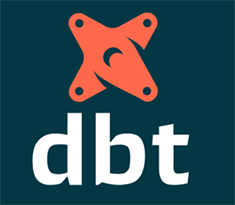DBT (Data Build Tool) quoting refers to the process of wrapping a string or identifier in quotes in SQL statements. This helps to prevent ambiguity and ensure that the SQL engine recognizes the string or identifier as a single entity, rather than interpreting it as multiple separate entities.
- String or Identifier: The term “string” typically refers to a sequence of characters, like text, while an “identifier” often refers to a name given to a database object, like a table or column name.
- Ambiguity Prevention: Quoting is important because without it, certain characters or names in SQL statements could be interpreted differently. For example, if you have a column named “date” in a SQL query, without proper quoting, it might be confused with the SQL keyword “DATE,” potentially causing errors or unexpected behavior. Wrapping it in quotes like “date” helps disambiguate it.
- Single Entity Recognition: By enclosing a string or identifier in quotes, you ensure that the SQL engine treats it as a single entity, respecting its exact spelling and case. This is especially important when dealing with case-sensitive databases or when dealing with reserved keywords in SQL.
In DBT, two types of quotes are commonly used: single quotes (') and double quotes ("). The choice of quote depends on the underlying SQL engine and the specific use case.
For example, in PostgreSQL and Redshift, single quotes are used to define string literals:
select 'hello world';
In BigQuery, double quotes are used for string literals:
select "hello world";
In SQL statements that include table or column names, quoting is used to prevent reserved keywords from being interpreted as such by the SQL engine, and to allow for names that include spaces or special characters. For example:
select "column 1" from "table name";
It’s important to note that the rules for quoting may vary between SQL engines, so it’s always best to consult the documentation for the specific SQL engine being used in a given project.
quoting:
database: true
schema: true
identifier: true
Get more useful articles on dbt



